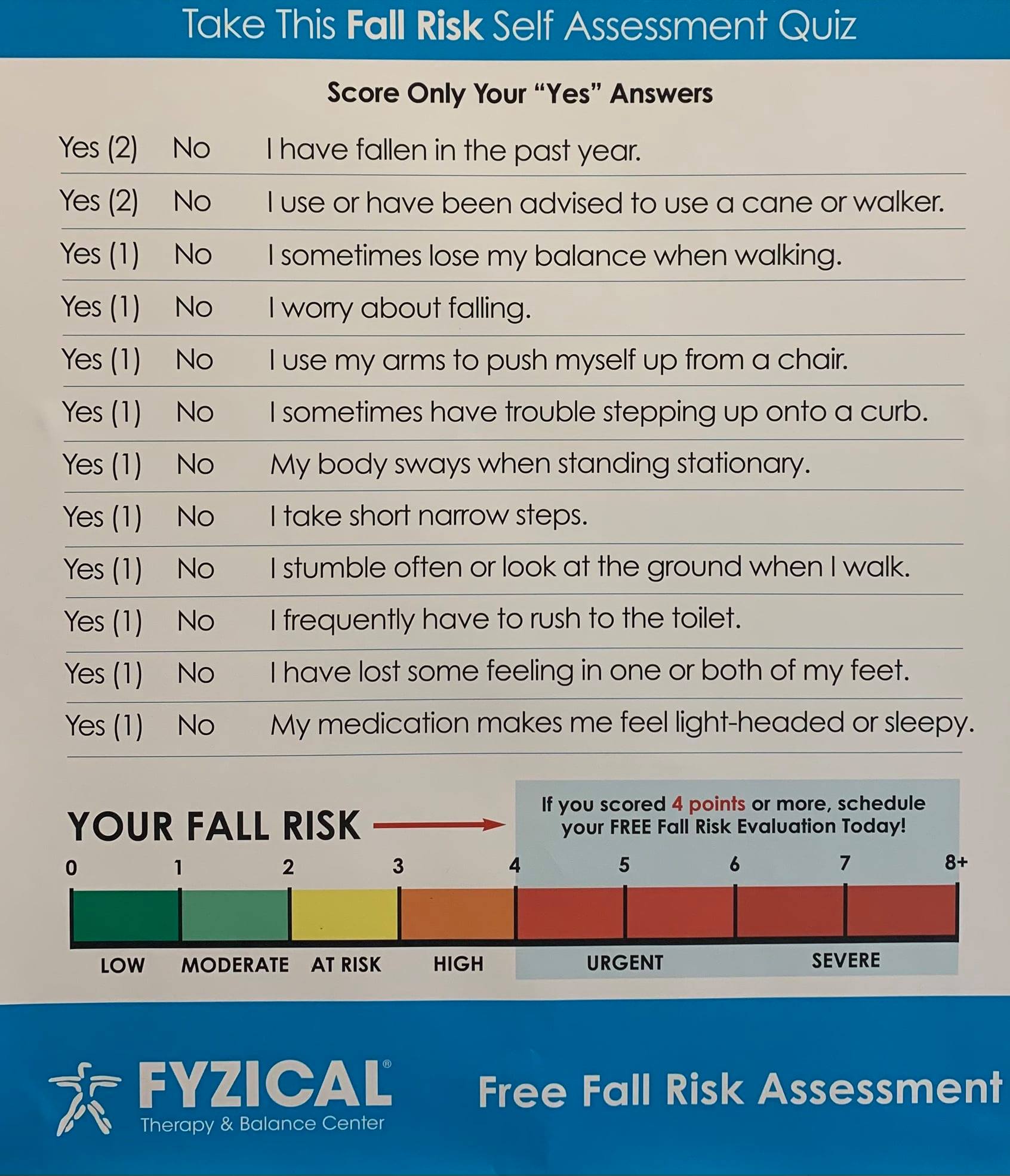Dementia Fall Risk for Dummies
Dementia Fall Risk for Dummies
Blog Article
How Dementia Fall Risk can Save You Time, Stress, and Money.
Table of ContentsThe Buzz on Dementia Fall RiskDementia Fall Risk Fundamentals ExplainedAll About Dementia Fall RiskRumored Buzz on Dementia Fall RiskSome Known Facts About Dementia Fall Risk.
Based on indications and signs, such as evidence of head injury or a brand-new focal neurologic shortage, computed tomography or MRI of the brain might be indicated. An evaluation for reasons for syncope need to be carried out just if there is strong uncertainty, as when it comes to frequent, unusual drops
Health care carriers use a fall risk analysis to determine your threat aspects for dropping and make valuable suggestions. A loss threat analysis is vital due to the fact that understanding which factors enhance your opportunities of falling helps you: Reduce your danger of falling or injuring on your own.
Optimize your capacity to relocate and be energetic. Keep a healthy and balanced, independent life. All adults 65 years and older should have a first fall threat screening. Your health care provider could ask you whether you: Feeling unsteady when standing or strolling. Have dropped in the past year. Worry concerning falling. If you address yes to any of these concerns, your doctor will recommend an extra, extra extensive assessment.
The Definitive Guide to Dementia Fall Risk

Discover this extensive nursing treatment strategy and monitoring overview to properly prevent threat for falls amongst patients. Acquire vital understanding regarding the nursing assessment, nursing medical diagnosis, and objectives particularly tailored to patients who are at danger for drops. A is defined as an occasion that causes an individual coming to relax accidentally on the ground or flooring or various other lower degree (THAT, 2021).
Dropping is the second leading cause of death from unintended injuries internationally. It more information is estimated that fall fatality rates in the United state
Some Known Details About Dementia Fall Risk
If this price continues, the CDC anticipates 7 autumn fatalities every hour by 2030.
Annually, over 800,000 individuals are hospitalized as a result of drops. Registered nurses play a major duty in avoiding succumbs to their people through education and learning, assessing loss risk, developing safer environments, and providing interventions in protecting against injuries from drops. Several risk aspects and conditions add to drops, consisting of the following:. Matured 65 years and older; reduced arm or leg prosthesis; use of assistive devices such as pedestrian, crane, and wheelchair; living alone.
Patient will demonstrate selective prevention actions. Person and caregivers will certainly execute methods to boost safety and avoid falls in the home. Autumns result from several elements, and visit their website an all official statement natural approach to the private and environment is essential. Mean an individual is considered at high risk for falls after the screening.
The Greatest Guide To Dementia Fall Risk
A needs utilizing a verified tool that scientists have examined to be helpful in calling the causes of falls in a person. The degree of autumn risk can be identified utilizing the evaluation of intrinsic and external factors.
People are much more likely to drop again if they have maintained one or more drops in the previous 6 months. The older population is at raised danger of fall-related readmissions based on a research identifying the factors anticipating of repeat falls linked outcomes (Prabhakaran et al., 2020).
Additionally, confusion and impaired judgment increase the person's opportunity of falling. The capability of people to protect themselves from drops is influenced by such aspects as age and growth. Older people with weak muscular tissues are most likely to drop than those that keep muscle toughness, flexibility, and endurance. These changes include minimized visual feature, damaged shade perception, adjustment in facility of gravity, unsteady gait, decreased muscle mass strength, decreased endurance, altered depth perception, and delayed action and response times.
Not known Factual Statements About Dementia Fall Risk
Much less contrast level of sensitivity was rather related to both boosted rates of falls and various other injuries, while lowered aesthetic skill was only connected with boosted loss rate (Wood et al., 2011). Sensory understanding of environmental stimuli is extremely important to safety and security. Vision and listening to problems limitation the patient's capacity to regard dangers in the surroundings.
Older grownups that have inadequate equilibrium or problem strolling are extra likely to drop., or other medical problems and therapies., and usage of psychotropic drugs (Stanmore et al., 2013).
Report this page